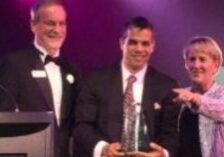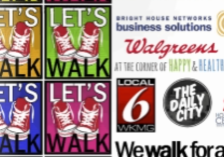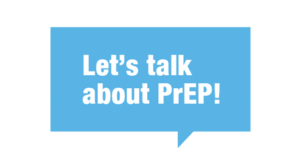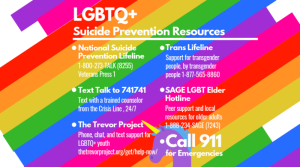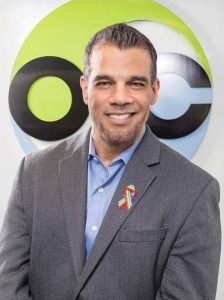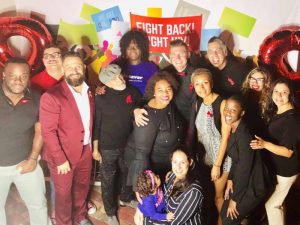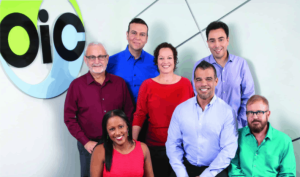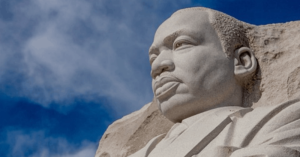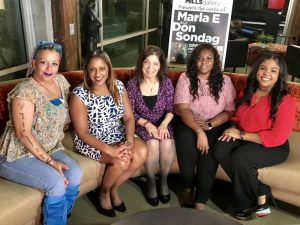What Is Usually the First Sign of HIV?
- What is HIV?
- What are the signs of an HIV infection?
- What is an HIV test?
- What if my HIV test result is positive?
HIV, or the human immunodeficiency virus, exists within the bodies of more than 1.2 million Americans. Each year, more than 35,000 new infections emerge. If left untreated, the virus can lead to acquired immunodeficiency syndrome (AIDS).
Since the beginning of the AIDS epidemic, more than 700,000 Americans have died from complications stemming from this disease. Even though HIV is no longer in the news all that often, it is clear that the disease continues to make an impact in this country. This blog will help you understand HIV, the symptoms of the disease, and how you can get help.
What Is HIV?
HIV stands for “human immunodeficiency virus.” We believe HIV came from the infected blood of chimpanzees in Central Africa. Some studies show this leap between species could have happened as far back as the late 1800s. Over time, HIV spread slowly but steadily across Africa and into other parts of the world.
In the early 1980s, doctors discovered a cluster of untreated HIV-positive patients who developed complications from what would later be called AIDS. In September 1982, the U.S. Centers for Disease Control and Prevention used the term AIDS and defined what this life-threatening illness looked like. Doctors learned that HIV could be transmitted in the blood and bodily fluids from infected people. By 1997, AIDS-related deaths in the United States were on the decline.
Today, we understand how to prevent the spread of HIV. Although we currently don’t have a cure for the virus, there are treatments available to help manage the disease.
New medications help people living with HIV to live long, happy lives. Taking these medications can reduce the viral load of HIV in your blood to the point where it is undetectable, reducing the chance of passing HIV to an unprotected partner or on to an unborn child.

What Are the Signs of an HIV Infection?
Fever is usually the first sign of an HIV infection. Many people also experience other flu-like symptoms as the disease manifests itself two to four weeks after exposure. This early, acute phase of HIV can last up to several weeks. Some of the other possible signs of the infection include:
- Chills
- Cough
- Diarrhea
- Fatigue
- Headache
- Mouth sores
- Muscle aches and pain in the joints
- Night sweats
- Skin rash
- Sore throat
- Sores in the mouth
- Swollen lymph nodes
- Weight loss
Knowing you have HIV is almost impossible without a test. That’s because the disease can masquerade as other illnesses and sometimes may not have symptoms at all at first. At least 13% of people with HIV don’t even know they have the virus. This makes it much more likely that they will spread the disease to others. If you’ve had unprotected sex recently, the only way to know if you have HIV is to get tested.
What Is an HIV Test?
A confidential HIV test can be performed by your doctor. There are three types of tests that look at your bodily fluids to check for signs of HIV: nucleic acid tests (NAT), antigen/antibody tests, and antibody tests.
- NAT tests require drawing your blood to look for both the presence of HIV and how much of the virus is present, known as your “viral load.” The benefit of a NAT test is that it can detect HIV earlier than other types of tests. The downside is that these tests are very expensive. Typically, we use this test if you’re exhibiting HIV infection symptoms or if you’ve had a high risk of exposure to the virus.
- Antigen/Antibody tests also draw blood, although there is a rapid test that requires a finger stick. This type of testing searches for antibodies that are produced in the blood by your immune system to fight the HIV invading cells. If HIV is in your body, you will produce an antigen called p24. The test looks for p24 as well as the antibodies that signal your body is fighting the infection.
- HIV Antibody tests just look for antibodies to HIV in your blood or oral fluids. These tests also require blood to be drawn from a vein.
The time for receiving test results spans several days to less than a few hours. Talk with your doctor about what type of test is right for you.

What If My HIV Test Result Is Positive?
If you had an antibody test and the result was positive, the first thing to do is get a follow-up test to confirm the results. If the follow-up test is positive, it means you have HIV. We know how stressful this diagnosis can be. You will feel many emotions such as anger, fear, or sadness.
Having HIV does not mean you have AIDS, which is the most severe and advanced form of the illness. Please know that millions of people live decades with HIV and have full, happy, productive lives. To start down that path, the next step after your diagnosis is to get HIV treatment immediately.
Antiretroviral therapy (ART) is the process of taking medication to treat your HIV infection. While ART cannot cure HIV, it can keep your symptoms from progressing. Reducing the HIV in your body also means that you lower the risk of transmitting the disease to someone else. Everyone who has HIV, no matter their symptoms, typically takes medications to lower the viral load in the body.
Today, we have a variety of medications available to treat your HIV. There are seven classes of drugs, all with different effects on the body, so talk with your doctor about a personalized drug therapy regimen designed specifically for you, your body, and your treatment goals.
A diagnosis of HIV, while serious, doesn’t mean your health has to decline. Get tested, and talk with the team at the Orlando Immunology Center about your options.
More Articles
Dr. DeJesus Recognized by Orlando Magazine
For the 5th consecutive year, Dr. DeJesus has been recognized by his peers in Orlando Magazine for his work as medical director at Orlando Immunology Center. Dr. DeJesus is a graduate from the University of Puerto Rico, School of Medicine. He completed his Internal Medicine training and Infectious Disease fellowship at the Medical College of…
Read MoreJoin OIC at the 2015 AIDS Walk Orlando
Orlando Immunology Center is pleased to announce that we will again be sponsoring a team at this year’s 2015 AIDS Walk Orlando. If you are interested in joining our team or donating to this worthwhile cause, please let us know. Saturday, March 28, 2015 In Florida, 15% of all new HIV infections reported among females…
Read MoreOIC Wins Wave Award for Favorite Local Healthcare Professional
The Orlando Immunology Center (OIC) announced today they have received the Central Florida/Orlando 2015 Watermark Awards for Variety and Excellence (WAVE) Award for favorite local healthcare professional. “We see this as a huge honor and will continue to do everything in our power to help patients from all walks of life be healthy, happy and…
Read More“Let’s Talk About PrEP” Video Goes ‘Viral’
The fun and educational video about HIV prevention goes viral in the best possible way Howard Brown Health is one of the largest LGBTQ health organizations in the country and they just released this new song and music video, “Let’s Talk About PrEP,” to continue raising the visibility of pre-exposure prophylaxis (PrEP) in the fight…
Read MoreWorld Suicide Prevention Day Orlando
World Suicide Prevention Day (WSPD), on 10 September, is organized by the International Association for Suicide Prevention (IASP). WHO has been co-sponsor of the day. The purpose of this day is to raise awareness around the globe that suicide can be prevented. If you, or someone you love, needs immediate assistance, please call 911. …
Read MoreDr. Edwin DeJesus on Best Doctors List by Orlando Magazine
Dr. DeJesus was recently voted “Best Doctors 2018” by Orlando Magazine for the 8th consecutive year! The Best Doctors in America® List includes the nation’s most respected specialists and outstanding primary care physicians in the nation. These are the doctors that other doctors recognize as the best doctors in their fields. They cannot pay a fee and are…
Read MoreCentral Florida HIV Planning Council’s First Open House
Come to Central Florida HIV Planning Council‘s first Open House! Everyone is welcome and a light lunch will be served. The event is at Heart of Florida United Way on Tuesday, January 15th, 2019 from 11am to 1pm. The Central Florida HIV Planning Council (CFHPC) is a community planning body. It’s responsible for HIV prevention and care for Central Florida’s…
Read MoreOIC Highlighted on 2018 Best Doctors List
OIC Highlighted on 2018 “Best Doctors List” in Orlando Magazine for the 8th consecutive year! The Best Doctors in America® List includes the nation’s most respected specialists and outstanding primary care physicians in the nation. These are the doctors that other doctors recognize as the best doctors in their fields. It is a list which is truly unbiased…
Read More5 Martin Luther King, Jr. Quotes to Inspire Better Healthcare
Dr. Martin Luther King, Jr. teachings transcend civil rights. He was a an extraordinary leader. His speeches and writings are some of the most impactful ever written. Here are 5 Martin Luther King, Jr. quotes to inspire better healthcare. We hope they empower you to live your best life and create healthy change in your community.…
Read MorePlanning Council-Ending HIV Together
The Central Florida HIV Planning Council business meeting is tonight January 30th, 2019. Where: Heart of Florida United Way, 1940 Traylor Blvd., Orlando, FL 32804 When: January 30th, 2019 Time: 5:30pm – 6pm light food, 6pm-8pm Business Meeting Everyone is welcome to join! It’s truly a community collaboration of people ending HIV together! You don’t need a medical degree, you…
Read MoreContinuing the NBHAAD Conversation
We are continuing the NBHAAD conversation and following up on our 2018 blockbuster Facebook Live Event. Last year for National Black HIV/AIDS Awareness Day (NBHAAD) we assembled powerhouses in HIV education, prevention, medical care and advocacy to discuss the most important issues facing the community. This year we are continuing the NBHAAD conversation because the…
Read MoreStay Healthy All Year – NBHAAD Health Resource Guide
Stay Healthy All Year with this NBHAAD Health Resource Guide. It’s Orlando’s ultimate 2019 NBHAAD health resource round up. On February 7th we marked National Black HIV/AIDS Awareness Day (NBHAAD) but one day is not enough for this important issue. So we created this quick reference guide with HIV facts, what you can do plus tons…
Read MoreFree Condom Locations in Orlando – International Condom Day 2019
These condoms are free because the protection they provide is priceless. Check out all the free condom locations in Orlando for International Condom Day (ICD) 2019! AIDS Healthcare Foundation (AHF) started ICD February 13, 2009. It’s an entire day to celebrate sex with condoms! You can greatly reduce the risk of STIs including HIV, HPV…
Read More